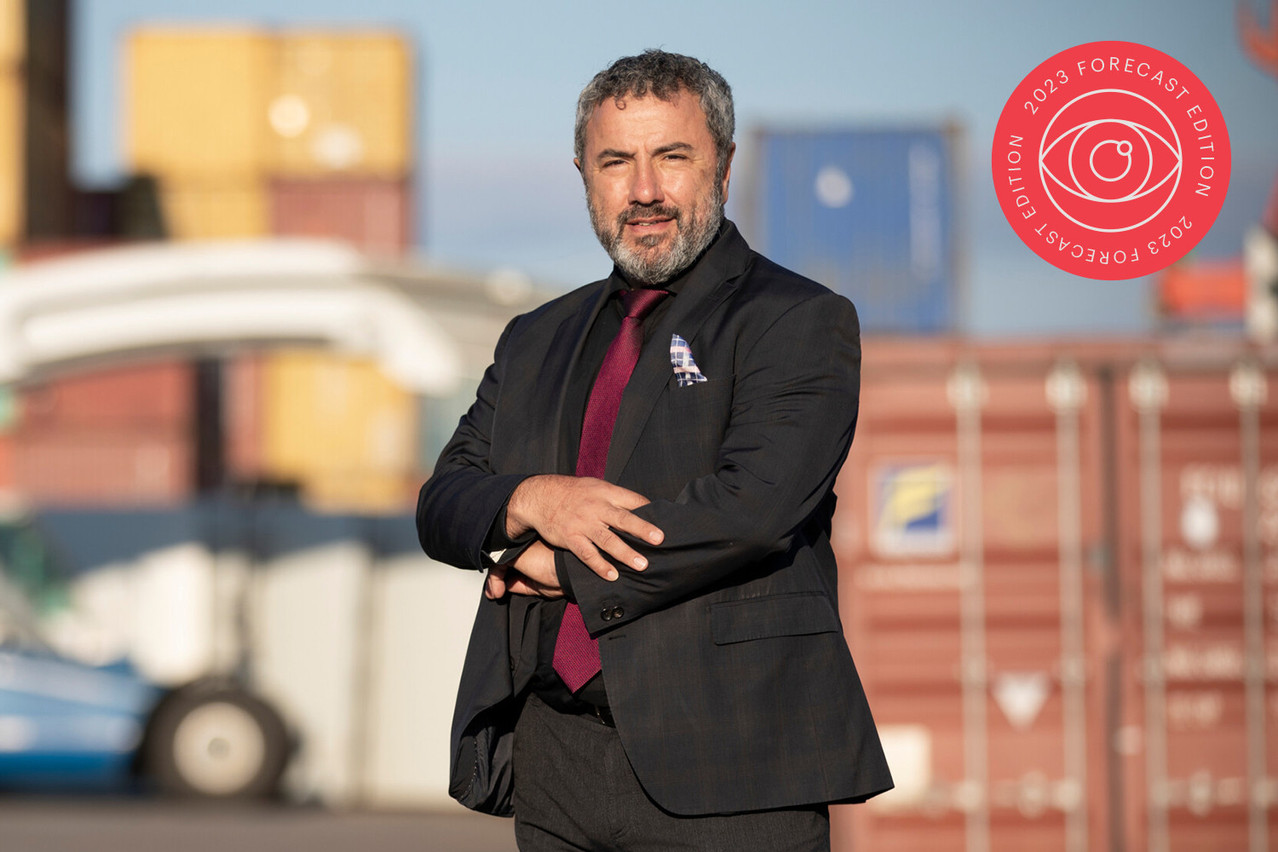Logistics, transport and warehousing are priority sectors of Luxembourg’s diversification and account for 28,800 employees and 6.2% of the Luxembourg’s GDP. However, Luxembourg needs to excel with efficiency and quality, considering that the average hourly wages of €39 are the second highest in Europe (after Denmark) and significantly higher than Germany’s (€29), according to the.
One way to create value is by reducing inefficiencies and costs with leaner processes via digitalisation. Therefore, the Cluster for Logistics is promoting the digital transformation of the transport industry. A survey in 2022 among C4L members showed that many digitalisation projects are underway, and for most companies, enhancing track & tracing and transport planification are the main priorities. However, time constraints and lack of internal expertise are still slowing down the process. The collected data is kept inhouse and the exploitation varies greatly among the sector, but companies are learning to use this data to enhance their sales or planning processes and consider artificial intelligence.
This transformation includes the digitisation of documents to reduce paperwork and therefore costs. Logistics service providers and customers should be increasingly looking to replace paper documents with digital counterparts. The legal framework exists, but the forerunners are struggling due to a lack of industry standards and customer acceptance. As the sector is very international and diverse, innovative logistics service providers struggle to convince all actors in the supply chain. Thus, paper copies are still used alongside digital versions. The trend to electronic versions of delivery notes, CMR consignment notes or airway bills, is however irreversible. The European electronic freight transport information (eFTI) regulation obliges all competent public authorities to accept electronic information by August 2025.
Luxembourg’s energy transition should aim for a mix of solutions is aiming for Green Hydrogen
Fluctuating energy costs are impacting logistics activities greatly and drive another logistics trend: sustainable logistics and alternative fuels. Diesel engines can be more sustainable by using expensive HVO (hydrotreated vegetable oil), but in the long run, the sector is looking at (green) hydrogen alternatives to electric trucks to reduce carbon emissions. Both types can coexist for different activities, typically electric for short haul and hydrogen for long haul.
Currently, the hydrogen trucks and their fuel are too expensive without subsidies and only prototype projects exist in Europe. In order to achieve a sizeable fleet replacement and a solid alternative energy network, the C4L calls for public support for investments into the energy transition. In Luxembourg, a first hydrogen fuel station will be ready around the beginning of 2023, but additional platforms in the Greater Region will be needed to kickstart the movement.
Projects like C4L’s LEAN & GREEN programme or institutions like the House of Sustainability can support companies to find new ways to reduce their carbon footprint.
